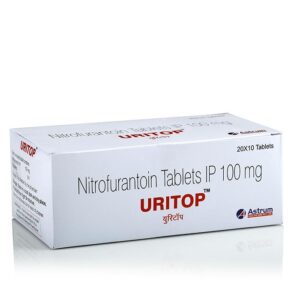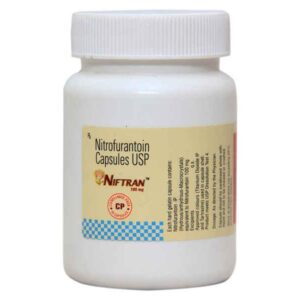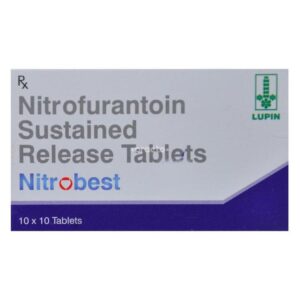NITROFURANTOIN
NITROFURANTOIN: NITROFURANTOIN is an antibiotic drug used to treat urinary tract infections (UTIs). It is specifically effective against bacteria that cause UTIs such as Escherichia coli, Enterococcus species, Staphylococcus saprophyticus, and some Klebsiella species.
The mechanism of action of nitrofurantoin involves the inhibition of bacterial enzymes that are essential for the metabolism and replication of bacterial DNA. This drug also damages the bacterial cell wall and affects other important cellular processes, ultimately leading to the death of the bacteria.
The recommended dose of nitrofurantoin for adults is usually 50-100 mg four times daily for 7 days. For children, the dose is usually based on body weight. It is important to follow the prescribed dose and complete the full course of treatment to ensure the eradication of the infection and prevent the development of antibiotic resistance.
While nitrofurantoin is generally well-tolerated, some potential side effects may include:
1. Gastrointestinal effects: Common side effects include nausea, vomiting, diarrhea, and abdominal pain. These often subside as the body adjusts to the medication. Taking nitrofurantoin with food may help alleviate these symptoms.
2. Allergic reactions: Some individuals may experience allergic reactions such as rash, itching, swelling, or difficulty breathing. If any signs of an allergic reaction occur, it is important to seek immediate medical attention.
3. Pulmonary side effects: Rarely, nitrofurantoin can cause lung problems such as acute and chronic pulmonary reactions (e.g., acute hypersensitivity pneumonitis, chronic fibrosing alveolitis). If there is any difficulty breathing or persistent cough, medical attention should be sought.
4. Hematologic effects: Nitrofurantoin may cause a decrease in certain blood cells, resulting in anemia, leukopenia, thrombocytopenia, or agranulocytosis. Symptoms may include fatigue, repeated infections, or bleeding. Regular blood monitoring may be required during treatment.
5. Central nervous system effects: Some patients may experience potential neurological side effects, such as headache, dizziness, drowsiness, or peripheral neuropathy.
It is important to note that nitrofurantoin is specifically used for the treatment of urinary tract infections and is not effective for other types of infections. It is advisable to consult a healthcare professional for proper diagnosis and treatment options when dealing with any infection.









